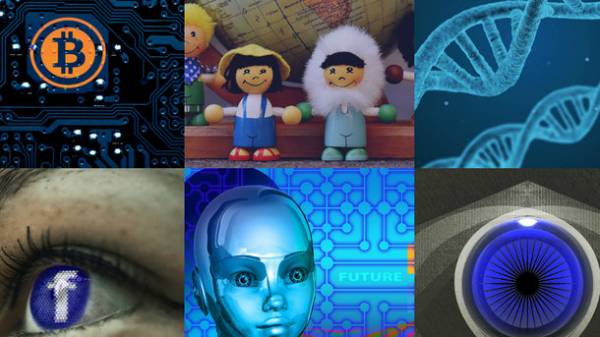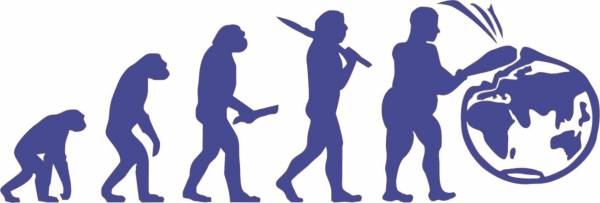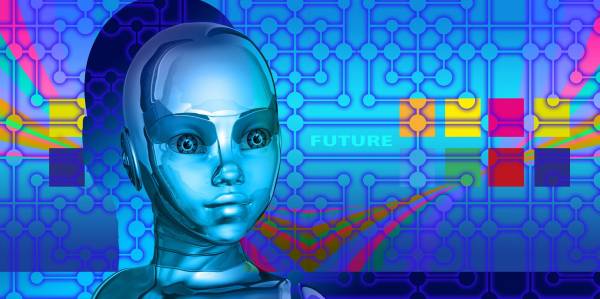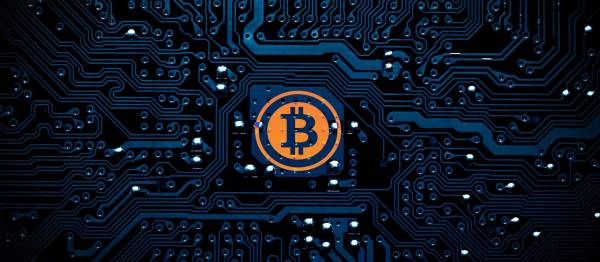
German economist of world renown, founder of the world economic forum in Davos, Klaus Schwab, said last summer that the fourth industrial revolution has already happened. This means that in the life, work and leisure of a person firmly entrenched robots, Internet, augmented reality, 3D printing and more.
However, with the relief of life, technological progress entails and the potential threat. For example, the market of cryptocurrency (digital money) from the beginning of 2017 have increased by half (to $21 billion). Thus, according to analysts, the world is not ready to transition to “digital gold” because of the high probability of financial crises in the future and the imperfection of the legislation. The same situation with editing genes despite the successful experiments on the cure of the HIV virus through such operations, the risks of future mutations is still relevant.
“Today”, with the support of experts, looked into the future and know what crises await us in 50 years.
THE CRISIS OF THE SENSES: THE THREAT FROM SOCIAL NETWORKS

The founder of Facebook mark Zuckerberg has recently said about his vision for the future, noting that the number of Internet users soon will markedly increase, and people will be much more comfortable to communicate using pictures and text. Thus, according to the International telecommunication Union, last year the number of Internet users has already exceeded 3.5 billion people. Not the last role is played by social networks and instant messengers — via same WhatsApp today more than a billion people. In search of new markets, the IT giants do not avoid domestic needs. Today with the help of phone or tablet you can order everything from food and clothing to furniture and cleaning the apartment. However, such availability is a dark point — the growing anti-social behaviour of Internet users. You may recall the phenomenon of “hikikomori” in Japan have been known for a long time. Giving preference to new technologies and online communication, people deliberately refuse social life popular was the story of a programmer, replacing live communication with the digital world, not left the house for about ten years.
Psychologist Susan Greenfield of Oxford University, in one of his articles notes that in the future such problems can lead to the spread of so-called crisis of identity and problems with empathy (ability to empathize with the emotional state of another person). The expert says that the lack of subtly is necessary to understand the non-verbal signals of communication, and the widespread use of the Internet slang reduces the value of human contact.
In turn, metapsychology from würzburg University (Germany), Astrid Carolus says the growing fashion for gadgets also can cause the collapse of social contacts of humanity: “Phones have become an integral part of our lives. Our almost friendly attitude towards smartphones means that we are too much trust in an inanimate object, moreover, we often believe that it is more important to us than many other people.”
Psychologist Catherine Gecan told us that the threat can become an opportunity to get rid of those you don’t like the “banned” button. “On the one hand, it’s nice and comfortable. On the other, we risk becoming intolerant of the opinions of others and to isolate themselves from reality. In social psychology there is the concept of “imaginary consensus”, which is evident in the phrase “all so think”/”nobody does”. Usually the basis for it is the opinion of your close environment of man. But surrounding yourself with comfortable people, we ignore the real picture. The alleged consensus is evident not only in the virtual world. But in the world of social networks it is easier to isolate themselves and gather under the banner of “the army agree with us,” she says. Finally, Gecan notes that obtaining information in the format of social networks, when you can learn “everything at once” does not encourage critical thinking.
GENES: SUPERWEEDS AND FASCISM

The beginning of genetic engineering put the three American scientists, which received in 1958 the Nobel prize in medicine. After almost half a century their countrymen were treated HIV-infected mice by editing of genes. However, the games with the basic building blocks of all living things carry their own risks, and through the next 50 years, humanity may be facing a new threat. So, the same genetically modified plants have the potential to become a “cursorname”.
For example, opponents of GMOs nod in the direction of a transgenic soybean that has been created is resistant to herbicides. It is the opinion of some scientists, can transmit resistant to chemicals genes of their wild relatives, because of what we get derivable weed, able to fill in all the fields, displacing wheat, corn and other crops. Their opponents say: the wild soybean fields does not contaminate, does not form extensive thickets, and is mostly found on roadsides, edges of fields and on wastelands. But in any case it is not known how will react the modified genes in the long term.
“You may experience error which will lead to even more problematic pathology. We climb to the thinnest tool with a huge screwdriver or an axe. But that’s the price we pay for progress. The same price we paid when I was doing technique — inverted tankers burned airships, disasters at nuclear power plants,” says futurologist albert Feldman.
In addition, scientists do not exclude and advanced forms of discrimination caused by genetic engineering.
“There are rich people who want to buy for themselves or their children the latest “upgrade”. It’s possible that people will be divided into those who can afford “better” offspring, and those who can’t afford it. This will lead to even greater disparities among different segments of the population”, — says the Executive Director of the Center for genetics and society in San Francisco Marcy Darnovsky.
Such case, the futurists called “genetic fascism” and noted that the precedent of this discrimination have already been in human history. Thus, the principles of eugenics (teachings, designed to bring the perfect person with control over the gene pool) was formed by the English psychologist Francis Galton in 1863. After only 70 years of eugenic experiments took an important place in government programs of Nazi Germany.
SMART WORLD: THE EYE SEES ALL

Increasingly there are news about the start of production of refrigerators, televisions, and even dumpsters that are connected to the Internet. They say that these technologies can make human life more comfortable: to automate the purchase of food online, or follow the schedule of garbage collection. Such a breakthrough in the development of high technology raises concerns among the conservative inhabitants of the planet, they say, if all of civilization will soon be connected to the network, it is possible that lost the concept of private life.
“According to estimates by the foreign companies, by 2020 more than 20 billion devices will be connected to the Internet (now 8.4 billion). And it’s not just about the household Internet of things, industrial, since, in addition to “smart homes” appears “smart” equipment, robots, promtekhnika. It’s all part of the industrial revolution 4.0, which will bring the world to implement the digital economy”, — explained the head of the Secretariat of the Council of entrepreneurs under the Cabinet of Ministers Andrei Zablovsky.
According to him, it is necessary in such a future very carefully monitor potential crises, since some risks can be seen today: “There are issues of cybersecurity and protection of confidential data. And unfortunately, although these risks exist today and constantly have the threat of hacker attacks, but in fact the entire scope of potential issues nobody understands. For example, analysis of a large amount of data on the Internet you can find almost any information about anyone. It can be used for compromising information, blackmail, manipulation in the formation of consumer tastes in the population”.
Now world leaders need to develop a clear plan of action for the protection of data of individual citizens, companies and Hosannah.
ECOCRISIS: CHANGE, CRISIS AND MIGRATION

Environmental problems can not disturb people, because in 50 years the world can expect any apocalyptic scenarios — the lack of drinking water and clean air, mountains of garbage… And, as the project Manager for alternative energy and ecology, Kyiv Smart City Alexander Pinchuk, the most dangerous crisis — climate change — is already happening.
“This is a consequence of atmospheric pollution by emissions of carbon dioxide, carbon monoxide, sulfur dioxide, etc. All affect the creation of greenhouse effects in the atmosphere and destruction of the protective ozone layer of the planet. And this is changing weather conditions and climate on a continental scale, and subsequently, the extinction of a great number of plant and animal biodiversity” — lists the expert.
Another problem is the growth of the world population, after all, by 2070 we will have 11.5 billion people (today 7.3 billion).
“The lack of fresh water is a reality for 200 million people. And 2030 half the world’s population will live under the threat of water scarcity. Water shortage in arid and semiarid regions will cause migration of the population. According to the UN, is to change the place of residence from 24 to 700 million people!” says Pinchuk.
Rapidly increasing consumption of fossil energy resources — coal, gas, oil etc. They might end up in 50 years. To reduce the risks in the next 5-10 years you need to invest in the development of diversification fossil energy resources, i.e. to produce energy from sun, water, wind. Also it’s important for people to change their lifestyles.
“We need to replace the vehicles with internal combustion engines to electric vehicles. It should be a global strategy for 10-15 years. Also you can enter emanage. But we must do it until there was an irreparable disaster,” says Pinchuk.
EXPANSION: A CLASH OF CULTURES

The division of labour, massive migration and the intensification of diplomatic contacts naturally led to globalization, which every year covers the world faster and faster. An expert on international Affairs Andrew Buzarov notes that the consequence has been a relative democratization of some countries (Lebanon, Tunisia) that have 20-30 years ago were pretty tough internal politics.
However, he says, and about the threats posed to such extension.
“Probably aktiviziruyutsya intercivilizational conflicts. Under the current globalization processes inevitably clash, for example, with the Islamic civilization. We have already partly seen in Europe and the middle East. In Europe we see that there is a serious radicalization of certain Islamic movements. In the middle East we see that the attempts to democratize some Arab countries do not lead to success — some of them very conservative, says Buzarov. The second negative aspect, which may lead globalization — the increasing number of conflicts over the imposition of certain values on other people, delkim from them. This will lead to immunity to it in some countries and some peoples. This poses a threat to various conflicts around the world — not only in the middle East but in South-East Asia, Africa and so on.”
ROBOTS AND PEOPLE: WHO WILL WORK

Active robots replace humanity in various sectors of activity, which in the future may lead to total unemployment. According to experts of the McKinsey Global Institute, in 2055, about half of the jobs available on the planet, you can take the androids. And then what do the normal people is a huge issue.
“If robots will replace human personnel, you must immediately think about how people can retrain. Because there will be a new profession for people, for example, an online psychologist. Because the artificial intelligence won’t be able to advise the person as another person. We need to be both biomedical doctors, Directors unique travel, urban “farmers” — says the Deputy head of the state employment service Sergey Kravchenko.
According to him, professional demand will be those people who will be ready to improve skills: “So you need to constantly interested in something new and keep track of which skills are now in demand in a particular specialty. It is not excluded that the profession of accountant, lawyer, Manager will change with the advent of digital economy, as specialty retailer or, driver will disappear. Instead, new directions will appear. In particular, promising entertainment and fitness, because people need to do something with free time. And, for example, instead of the usual profession of the Builder will appear to the designer of the smart home infrastructure, to replace traditional doctors will come of IT-doctors, genetic consultants,” explains Sergey Kravchenko.
This is important because it will help people find focus and even to organize their own business. “It is expected that in 10 years about 80% of the jobs will be for self-employed people to come up with your own unique product or service” — says Kravchenko.
In order in order to prevent the growth of total unemployment among the population, it is necessary in all countries to massively enter the online retraining of people. “Today, almost all European countries have lagged behind the needs of the labour market. And the United States, Japan, Singapore, UAE, Qatar, China are advanced, as countries invest a lot of money in online education. Here, Ukrainian universities need time to refocus, otherwise our young people will increasingly go to study abroad. If you take the statistics, five years ago, Ukrainians in Poland, studied 3 thousand, and now already 34 thousand,” — said Kravchenko.
CRYPTOCURRENCY: NO EMISSION AND INFLATION

One of the major challenges of recent years has been the emergence of electronic money, and in many countries already seriously thinking about to enter the cryptocurrency in everyday life. So, in the UAE plan to release a digital cash standard, backed by gold. And in the Austrian capital Vienna have officially valid bitcoin Bank where you can exchange, for example, euros to bitcoins. Nobody will be surprised by the suggestions of shops or restaurants, allowing you to pay for goods and services with cryptocurrency. These trends have raised concerns of the experts: the world economy is not yet ready to move to the full function of electronic money, as you may experience unpredictable financial crises. To understand this question helped us a senior analyst at GK Forex club Andrey Shevchishin.
“It is difficult to predict what might be the crises of new electronic money. But blockchain (a digital transaction) and cryptocurrencies are the object of scrutiny of large investment banks, centrobanca, incorporateda. It is likely that there in the study not only of the application area, but also vulnerability. The vulnerability currently is being considered solely from the point of view of hacking, yet very complex and requires huge resources. Such breakups were only a few, and each time the system recovered and was growing “a protective shield”. But hackers are also not standing still, so the growing risks need to be considered,” — said the Shevchishin.
According to him, another vulnerability is the lack of legislative adoption of crypto-currencies as means of payment by most countries: “In fact, working with cryptocurrency, this is a public offer acceptance of its tender, but it does not recognize the state”.
If you type bitcoin into the global economy, this will enable total control of movement and use of funds. “The system is online, and the technology allows it, because the blockchain can contain a huge amount of information that accompanies the transaction. On the basis of digital security, for example, developed a clever agreement,” explains Shevchishin. The other side of the coin, the inability to issue the cryptocurrency.
“The target emission on a global scale sometimes necessary to ensure the viability of the state, because the country’s in crisis, considering the devaluation of their currencies as a means to stimulate exports and overcome the crisis or as an opportunity to pay off the debts, or to pay salaries. But the possibility of such emission is not provided by the code of the crypto-currencies,” — said the expert.
It is unclear how the cryptocurrency will be to manage crises, if the collapsing economy and trade turnover would not require this amount of electronic money. “The current cryptocurrencies are not faced with such conditions, as they are too small and only build momentum,” explains finanalitik. But cryptocurrencies can take a worthy place in the global approves.







